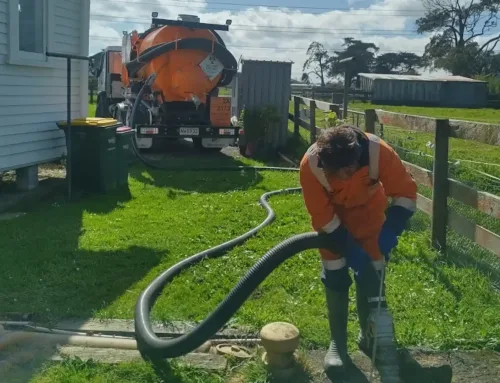Some Ideas on Reclaim Waste You Need To Know
Some Ideas on Reclaim Waste You Need To Know
Blog Article
Things about Reclaim Waste
Table of ContentsReclaim Waste - QuestionsIndicators on Reclaim Waste You Should KnowLittle Known Questions About Reclaim Waste.Things about Reclaim Waste10 Simple Techniques For Reclaim Waste
Domestic sewage waste refers to the waste and items from a residential septic container. The appropriate monitoring and disposal of domestic sewage waste require fluid waste to be transferred to a sewer treatment plant where the appropriate techniques and equipment are used to detoxify and dispose of waste.
Commercial waste commonly consists of possible threats, such as combustible materials or a mix of fluid and strong waste products, and needs an advanced and comprehensive disposal procedure. The disposal of business waste usually entails the filtration of waste prior to transport to make certain safe and proper disposal. Industrial waste is created from results and drainage of commercial processes and production.
This sort of waste can not use the same sewer monitoring transportation or processes as septic or industrial liquids. The commercial waste monitoring procedure needs the examination and testing of liquid waste prior to it undergoes the disposal procedure (industrial wastewater treatment). Overflow waste is the liquid waste that originates from runoff and excess stormwater in extremely populated areas or cities
Overflow waste can trigger contamination and flooding if not dealt with properly. Guaranteeing proper waste management can avoid disasters and decrease ecological damage.
The Only Guide for Reclaim Waste
Contact PROS Solutions today to find out about our waste monitoring and disposal services and the appropriate ways to take care of the fluid waste you generate.
(https://trello.com/w/reclaimwaste1/)Do you recognize what takes place to your water when you end, flush the toilet or drain the cleaning device? No? Well, it deserves knowing. This so-called 'wastewater' is not only an essential source however, after therapy, will certainly be released to our land, rivers or the sea. Made use of water from toilets, showers, bathrooms, cooking area sinks, washings and commercial procedures is referred to as wastewater.

water made use of to cool down machinery or clean plant and devices). Stormwater, a type of wastewater, is runoff that flows from agricultural and metropolitan areas such as roofings, parks, gardens, roads, paths and gutters into stormwater drains, after rain. Stormwater moves untreated directly to neighborhood creeks or rivers, at some point getting to the ocean.
Getting My Reclaim Waste To Work
In Queensland, a lot of wastewater is treated at sewer therapy plants. Wastewater is delivered from residential or industrial sites through a system of sewers and pump terminals, recognized as sewerage reticulation, to a sewer therapy plant. City governments construct, keep and run most sewage treatment plants. Operators are certified under the Environmental Defense Act 1994 to release treated wastewater at an acceptable ecological criterion right into rivers.
The Department of Natural Resources advises city governments about managing, operating and keeping sewerage systems and treatment plants. In unsewered areas, city governments may require homeowners to set up private or family sewer therapy systems to treat residential wastewater from bathrooms, kitchens, shower rooms and laundries. The Division of Natural Resources authorises the usage of family systems when they are verified to be efficient.
Most stormwater obtains no therapy. In some brand-new subdivisions, therapy of some stormwater to eliminate trash, sand and crushed rock has begun making use of gross toxin traps. Wastewater therapy happens in 4 stages: Eliminates solid matter. Larger Recommended Reading solids, such as plastics and various other objects mistakenly released to sewage systems, are removed when wastewater is gone through screens.
Wastewater then moves right into huge tanks where solids resolve and are removed as sludge. Grease and residue are skimmed from the surface. Utilizes small living microorganisms called micro-organisms to damage down and eliminate continuing to be dissolved wastes and great particles. Micro-organisms and wastes are integrated in the sludge. Gets rid of nitrogen and phosphorus nutrients that could cause algal blooms in our waterways and intimidate marine life.
The Main Principles Of Reclaim Waste
Nutrient removal is not offered at all sewer therapy plants because it requires expensive specialized devices. Clear fluid effluent produced after therapy might still include disease-causing micro-organisms - liquid waste disposal melbourne.

This normally implies wastewater has actually to be treated or pollutants removed prior to it can be discharged to waterways. The majority of wastewater moves into the sewerage system. Under the Act, city governments provide approvals and licences for ecologically pertinent activities (Ages) including wastewater launches that may have a local effect. The division carries out authorizations and licences to Periods involving wastewater releases that may have a regional or statewide impact.
About Reclaim Waste
Otherwise, samples are considered laboratory analysis. Often several examinations are needed to develop the degrees of each of the different pollutants such as oils, heavy metals and chemicals in water. Surveillance supplies factual details concerning water quality and can verify that licence conditions are being met. The details acquired via surveillance provides the basis for making water top quality decisions.
Report this page